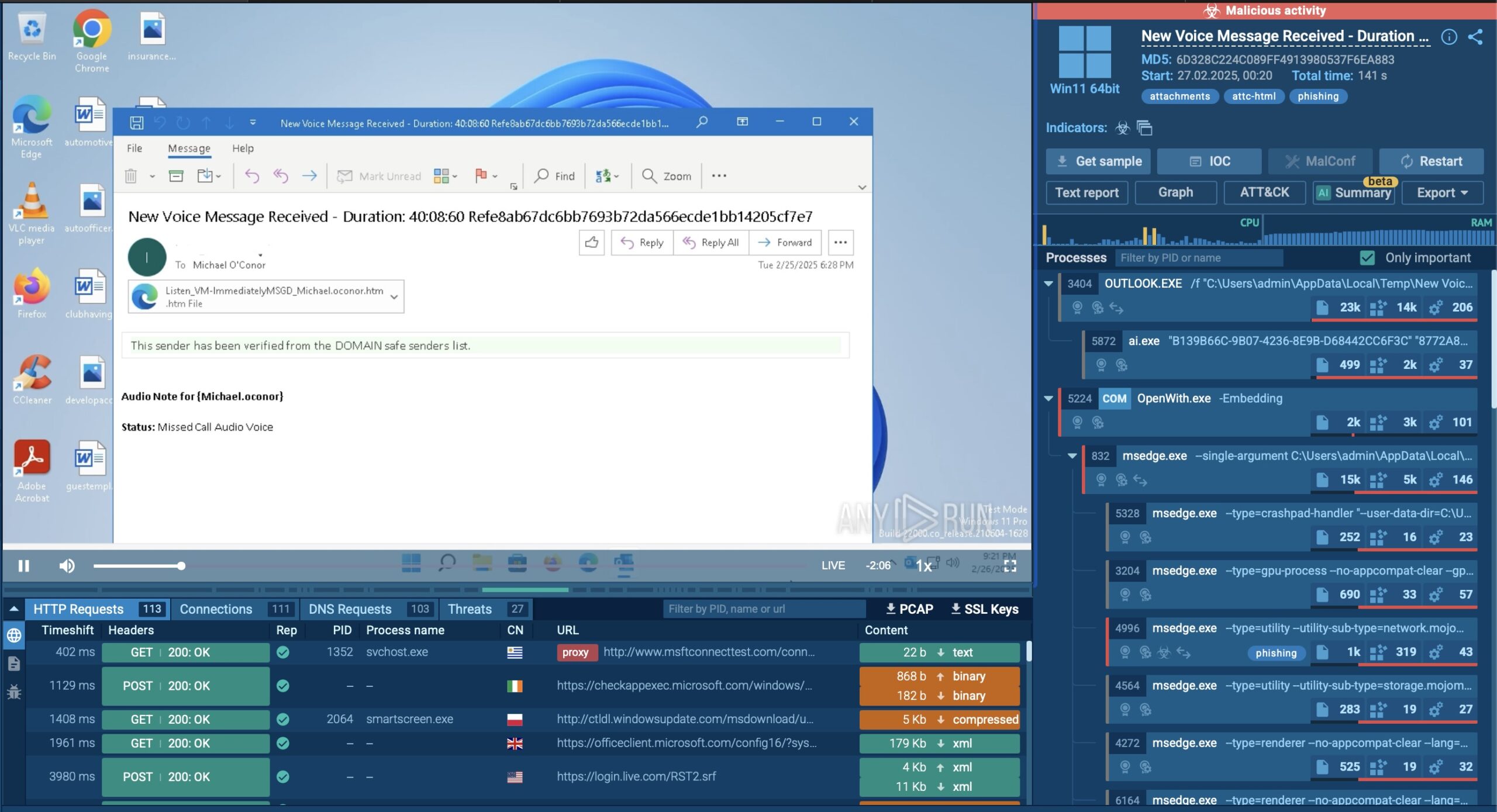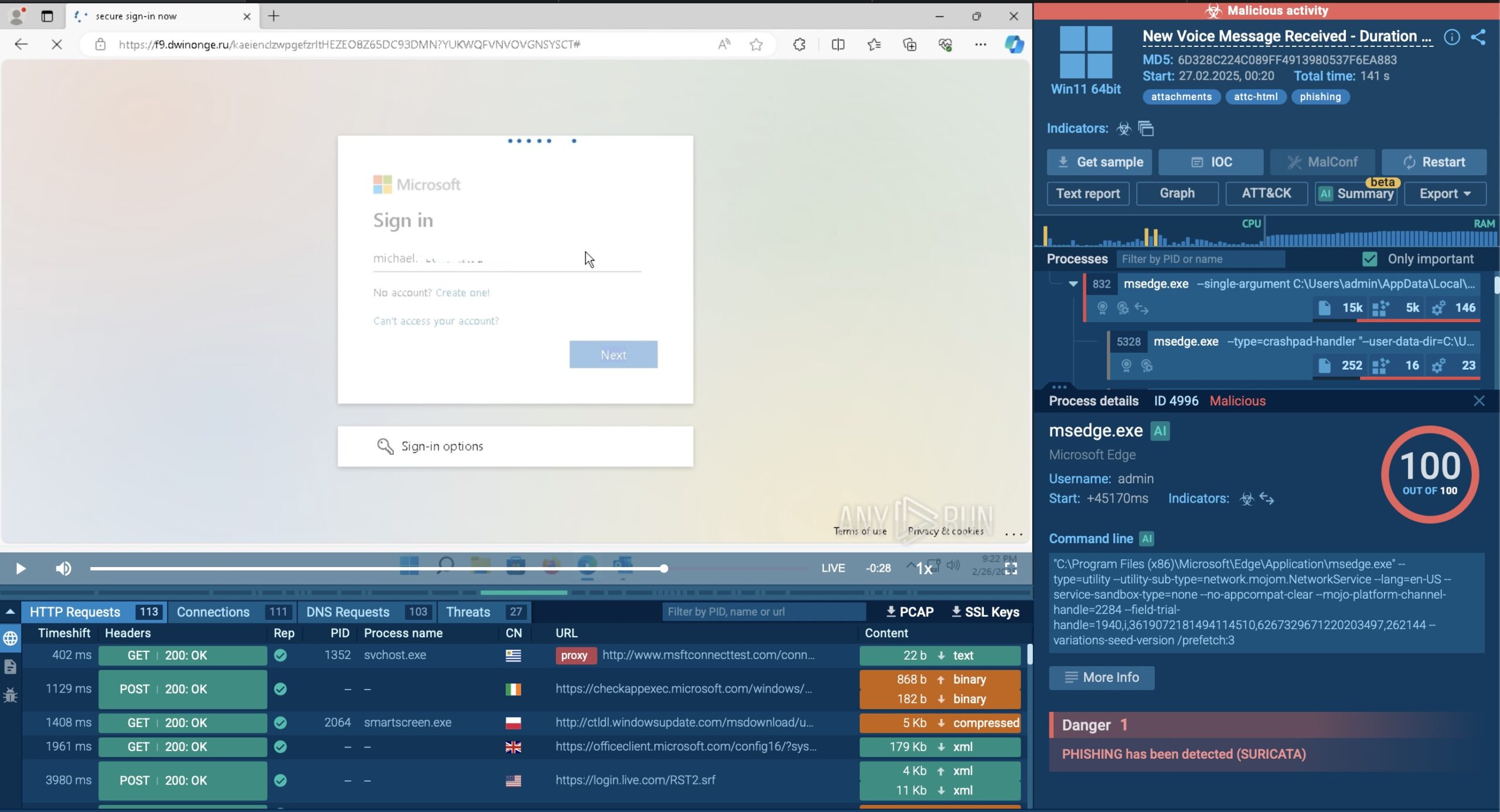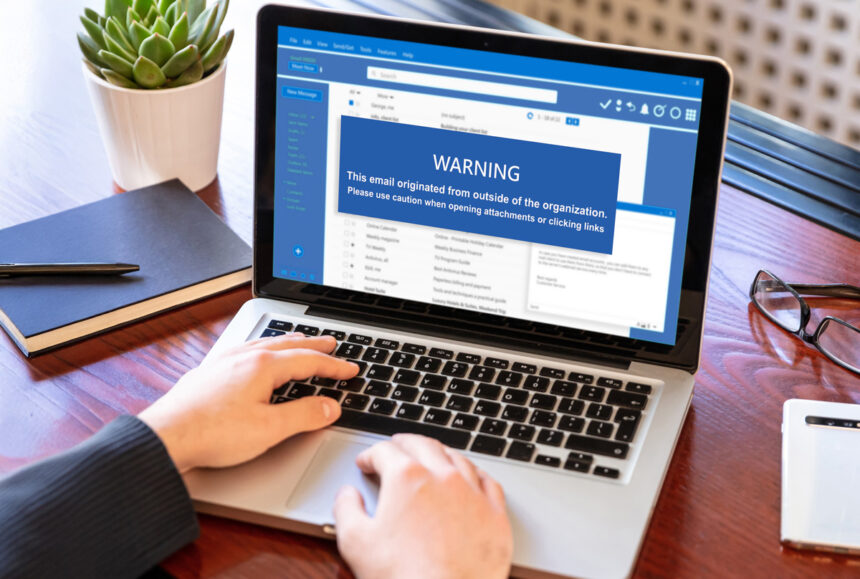Email is the most common gateway for cybercriminals. This fact underscores the importance of investing in email security, especially for businesses. Given the constantly evolving malicious techniques, it’s not enough to rely solely on built-in security tools.
Corporate mailboxes require additional security measures that allow for preventive action against threats.
Five essential email security tools for businesses are:
1. Sandbox for email analysis
Sandbox services for malware analysis allow users to check potentially dangerous emails, files, and URLs in a safe environment of a virtual machine. For example, if you receive a suspicious email, you can interact with it in the sandbox instead of their actual system and identify whether it’s actually malicious or not.
ANY.RUN Interactive Sandbox successfully detects most phishing emails automatically without the need to perform in-depth analysis requiring a cybersecurity specialist. In case manual investigation is still necessary, this option is available, too.
You can learn how it works by following the analysis of a threat sample here. As we can see, a user received an email, supposedly containing an urgent audio message which is attached to the email in the form of an HTML page.

A phishing letter as seen in ANY.RUN sandbox
When opened, the HTML pages sends the user to a malicious website that masquerades as a Microsoft starting page. As they try to log in, the malware attempts to steal their credentials, as you can see in the process details section.

Phishing page in ANY.RUN sandbox
Since the file was executed in the sandbox, no harm was actually done. However, if it wasn’t for this preventive measure, the company’s security would be compromised.
By using the results of this analysis, a security specialist can take further action to protect the network from similar threats.
Register in ANY.RUN now to prevent cyber attacks with proactive sandbox analysis.
2. Spam filters
Even though basic spam filters that identify potentially dangerous letters are embedded in email services, business mailboxes require extra protection. It can be achieved by adding custom filters or by integrating external spam protection solutions. An adjustable tool enforces better protection for corporate infrastructures, making sure that company policies regarding security are followed.
3. Firewall
Both network and email firewalls are essential tools for ensuring the security of businesses. The first option monitors and filters all traffic, protecting it from potential threats, while the second solution is focused solely on email inspection.
Email firewalls, however, aren’t equal to spam filters – they are more customizable and analyze incoming content in an in-depth way. This allows them to protect your infrastructure from more dangerous threats.
Each of these tools plays its role in safeguarding your business and therefore they aren’t mutually exclusive. On the contrary, it’s best to apply a complex approach for maximum security.
4. Employee training
In most cases, it’s human errors that lead to the compromise of security. Cybercriminals know how to gain trust and exploit it for their benefit. Therefore, one of the most vital security measures you can take is to train your employees on how to detect phishing emails and provide them with instructions on what to do if they receive a questionable letter.
5. Backups
It’s hard to overemphasize the importance of making sure your company’s data, including emails, is always safe and can be recovered in case of a data loss. A copy of all important information should be stored in a secondary location. That’s what email backups are for.
This procedure is crucial for sustainable data storage and communication. It’s not enough to simply create a copy – the backup location should also be no less protected than original storage to avoid breaches and data corruption.
Related News:
Asian Pacific Businesses Face Record-High Email Attacks

Geoff Thomas is an award winning journalist known for his sharp insights and no-nonsense reporting style. Over the years he has worked for Reuters and the Canadian Press covering everything from political scandals to human interest stories. He brings a clear and direct approach to his work.














